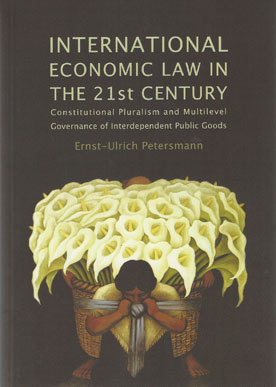
The state-centered paradigm of international law – the Westphalian model - has failed to deliver effective, universal, human rights protection, democratic peace, sustainable development and consumer welfare. Why?
Despite the full weight of UN endorsement, human rights conventions and the Bretton-Woods agreements continue to treat citizens as mere objects of inter-state regulation, not as the main subject of human rights protection and of international economic cooperation.
Ernst-Ulrich Petersmann, a widely admired and experienced academic, judge and policy maker in the field of international economic law, argues in this new book that there is a need to 'civilise' the global economy by improving its human rights performance. Worldwide economic regulation tends to lack reference to human rights, general consumer welfare, democratic citizen participation and the rule of law among citizens.
The practical influence of national parliaments on intergovernmental rule-making is all too often marginal. In order to make global governance for the collective supply of 'global public goods' legitimate and effective, multilevel economic regulation must be designed and justified in terms of human rights and other 'principles of justice'.
The bedrock of this move to civilise will be international law based on adequate 'constitutional safeguards'. By protecting the rule of international law based on respect for human rights, multilevel regulation of economic cooperation, and the observance of human rights standards among private, public, national, transnational and international institutions, progress is achievable.